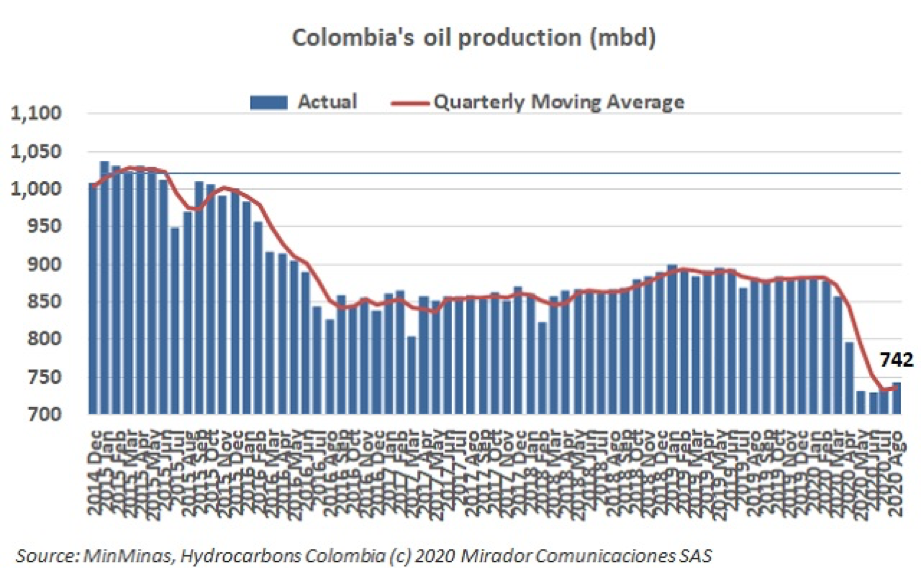The Minister of Mines and Energy (MinEnergia), Diego Mesa, highlighted the role that the mining – energy sector will have in Colombia’s economic reactivation process.
President Iván Duque announced the appointment of Sandra Sandoval as the new Vice Minister of Mines and Energy (MinEnergia). Here are the details.
The Bank explained why, unlike other experts, it does not consider that the economic recovery process can be illustrated as a V, U, or L shape.
Industry experts spoke about Decree 1157 of 2020, which provides tax benefits and legal stability for investors.

The Ministry of Mines and Energy (MinEnergia) spoke about the oil and gas production in recent weeks.
Analysts from the mining sector spoke about the consequences of shelving the environmental license of Minesa’s Soto Norte gold project.
These are the strategies of ‘Colombia Productiva’ (literally: ‘Productive Colombia’), the entity of the Ministry of Commerce (MinComercio) that is leading the economic reactivation process.

Last week’s top story from a readership perspective was the list of companies that qualified for the government’s upcoming auction (PPAA). No doubt readers were looking for any surprises: new players or non-participants.
The Minister of Mines and Energy (MinEnergia), Diego Mesa, announced that the final documents for the project will be published next week.
The Colombian Association of Petroleum Engineers (Acipet) announced that it will soon have a new Board of Directors.